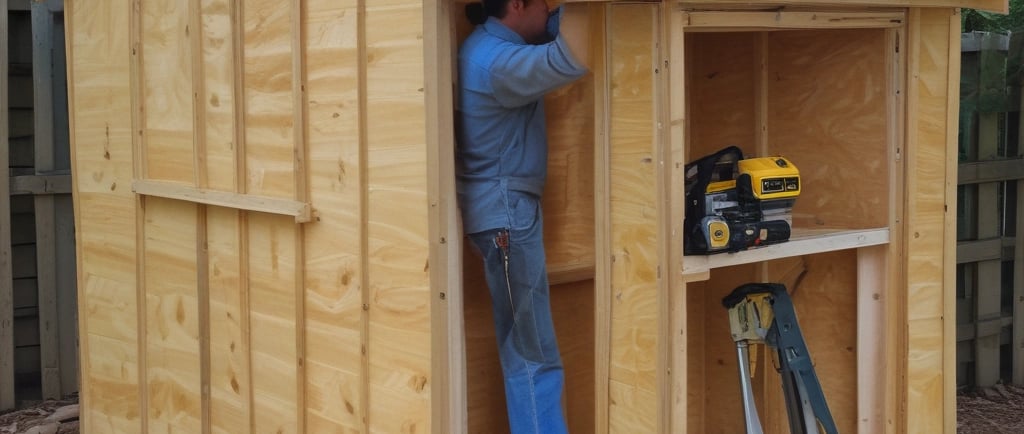A Brief History of DeWalt: Innovation in Power Tools Since 1924
DEWALT GENERAL
10/26/20254 min read


The Founding of DeWalt: A Visionary Beginning
DeWalt, a name synonymous with innovation in the power tool industry, traces its origins to 1924 when it was founded by Raymond DeWalt. His pioneering spirit led to the creation of the radial arm saw, a power tool intended primarily for woodworkers. This groundbreaking design was not merely a product but a reflection of DeWalt's vision to enhance craftsmanship through improved efficiency and precision. The radial arm saw revolutionized the way woodworkers approached their projects, significantly streamlining their workflow.
Raymond DeWalt's insight into the market set the foundation for the company’s future endeavors. At a time when the power tool landscape was relatively nascent, DeWalt recognized the need for tools that combined quality with innovative design. This dedication to creating practical solutions for craftsmen not only positioned DeWalt as a leader in the sector but also paved the way for subsequent developments in tool technology. The early 20th century witnessed a burgeoning interest in power tools, and DeWalt's contribution came at a pivotal moment when the woodworking industry was transitioning towards more mechanized processes.
The commitment to quality craftsmanship characterized the formative years of DeWalt. By focusing on the distinct needs of woodworkers, the company sought to manufacture tools that were durable, reliable, and user-friendly. This ethos resonated with the market, enabling DeWalt to carve out a niche in an era where hand tools still held significant prominence. As the demand for power tools grew, DeWalt's continuous commitment to innovation and customer satisfaction established it as a respected brand in the woodworking community. The foundation laid by Raymond DeWalt became instrumental, shaping a legacy that would influence the power tools industry for decades to come.
Milestones of Innovation: Key Developments Over the Decades
Since its inception in 1924, DeWalt has been at the forefront of innovation in the power tools industry. The company initially made its mark with the introduction of the "Wonder-Worker," an innovative radial arm saw. This early development set the stage for the tremendous growth and expansion of DeWalt's product line, paving the way for future innovations. As the decades progressed, DeWalt introduced various heavy-duty drills that catered to both professionals and serious DIY enthusiasts alike, affirming its commitment to quality and performance.
The 1960s and 1970s witnessed a surge in technological advancements. During this era, DeWalt expanded its product portfolio to include an array of power tools that significantly enhanced user experience and efficiency. One landmark achievement was the release of the first electric nailer, which revolutionized construction methods. By streamlining the nailing process, this tool not only increased productivity but also set new safety standards within the industry.
Arguably, one of the most significant innovations arrived in the 1990s with the introduction of cordless power tools. This transition to battery-operated tools eliminated the constraints of cords, allowing users unprecedented freedom and mobility. DeWalt's commitment to R&D led to the development of advanced battery technologies, such as lithium-ion batteries, which provided longer run times and faster charging compared to their predecessors. The impact of this innovation resonated widely, fundamentally reshaping job site dynamics and enhancing convenience for users.
Throughout the years, DeWalt has continually prioritized user feedback, which has influenced the design of many tools. This customer-centered approach has driven improvements not only in tool longevity but also in ergonomics and functionality. As DeWalt continues to embrace innovation, its legacy remains firmly rooted in the pursuit of excellence, pushing boundaries to ensure top-tier performance in power tools. As evidenced by its impressive milestones, DeWalt effectively set the standard for the industry.
Expansion and Growth: DeWalt's Impact on the Global Market
Since its inception in 1924, DeWalt has undergone significant transformation, establishing itself as a powerhouse in the international power tool market. Following its acquisition by Black & Decker in 1960, DeWalt's reach expanded exponentially. This pivotal merger allowed DeWalt to leverage Black & Decker's extensive distribution and marketing capabilities, positioning its brand prominently across various regions worldwide.
DeWalt's branding strategy emphasizes durability and innovation, traits that have resonated well with both professionals and DIY enthusiasts. The company's focus on producing high-quality, reliable tools has helped it to cultivate a loyal customer base globally. By understanding market demands and tailoring product offerings to meet diverse needs, DeWalt has effectively solidified its status in the competitive landscape of power tools.
The global expansion of DeWalt also involved strategic marketing approaches that capitalize on the company's commitment to quality. By aligning its marketing messages with the values of durability and performance, DeWalt has successfully differentiated itself in an increasingly crowded marketplace. The brand has also expanded its product lines over the years, introducing innovative solutions that cater to the evolving requirements of customers. As a result, DeWalt became synonymous with innovation, offering a vast ecosystem of tools designed for various applications ranging from construction to woodworking.
DeWalt's international presence is further reinforced through partnerships and collaborations with local distributors, enabling the brand to adapt its products and services based on regional preferences. This adaptability, combined with a reputation for quality, has positioned DeWalt as a leading name in the power tool industry and a force to be reckoned with, fostering its continuous growth in international markets.
The Future of DeWalt: Commitment to Sustainability and Technology
DeWalt has established itself as a frontrunner in the power tools industry, continually adapting to meet the evolving demands of professionals in construction and woodworking. As the company looks towards the future, its commitment to sustainability and the integration of advanced technology into its product offerings is more pronounced than ever. DeWalt recognizes that the future of power tools hinges not only on performance but also on environmental responsibility.
One of the key initiatives in DeWalt’s future direction is a significant investment in battery technology. The evolution of battery-powered tools is essential to creating more efficient, eco-friendly solutions for users. By developing lithium-ion and other advanced battery systems, DeWalt aims to maximize power output while minimizing environmental impact. This aligns with a broader industry trend favoring cordless tools that offer mobility without compromising performance.
Moreover, DeWalt is leveraging smart technology to enhance user experience and increase productivity. The integration of IoT (Internet of Things) within tools allows for real-time data analytics, enabling users to monitor performance, track usage, and receive maintenance alerts. Such features not only help professionals work more efficiently but also contribute to the longevity of the tools, further reducing waste.
In addition to technological advancements, DeWalt’s dedication to sustainable practices is evident in its manufacturing processes. The company is actively exploring materials and methods that reduce its carbon footprint. This sustainability commitment includes using recycled materials in product design and implementing waste reduction programs in manufacturing facilities.
Overall, DeWalt’s future is poised for continued growth through innovation in both sustainable practices and smart technology. By positioning itself as a leader in these critical areas, DeWalt aims to meet the changing needs of professionals while maintaining high standards for performance and environmental stewardship.
